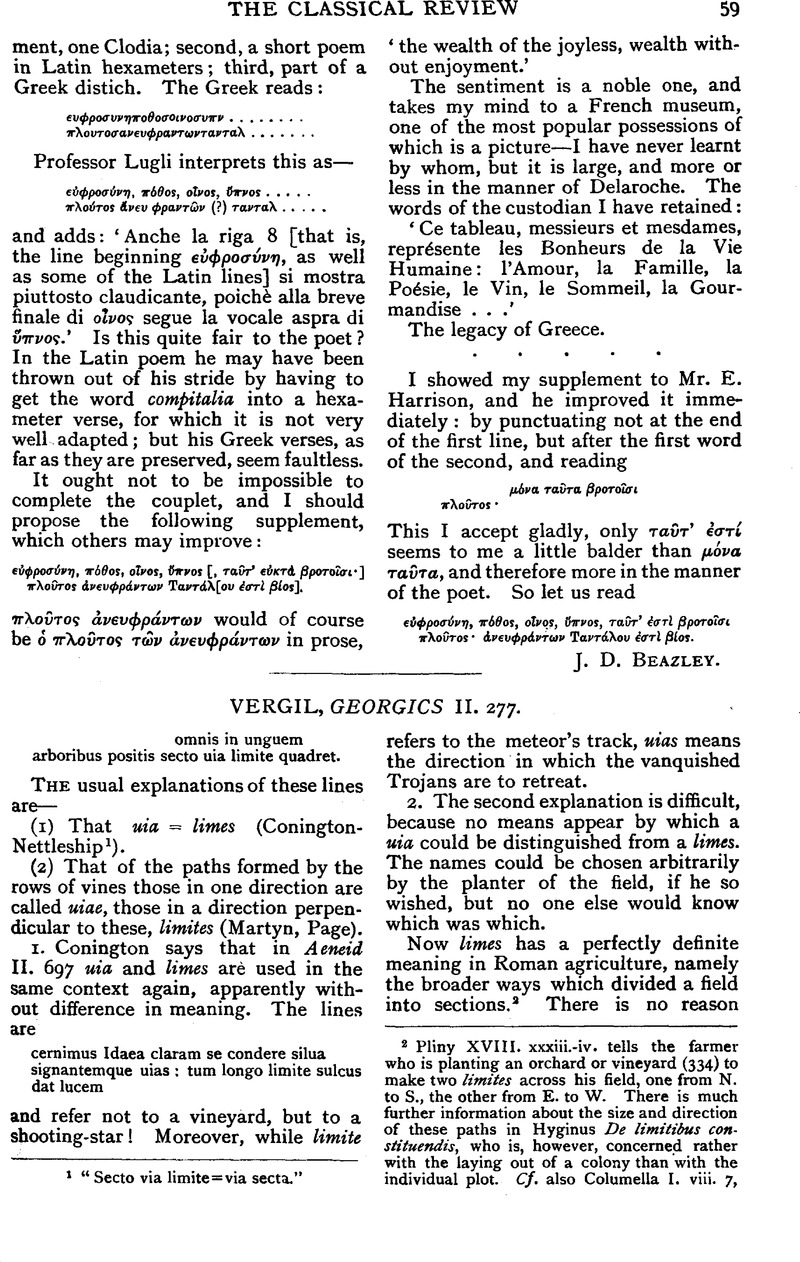No CrossRef data available.
Article contents
Vergil, Georgics II. 277
Published online by Cambridge University Press: 27 October 2009
Abstract

- Type
- Review Article
- Information
- Copyright
- Copyright © The Classical Association 1928
References
page 59 note 1 “Secto via limite=via secta.”
page 59 note 2 Pliny XVIII. xxxiii.-iv. tells the farmer who is planting an orchard or vineyard (334) to make two limites across his field, one from N. to S., the other from E. to W. There is much further information about the size and direction of these paths in Hyginus De limitibus constituendis, who is, however, concerned rather with the laying out of a colony than with the individual plot. Cf. also Columella I. viii. 7, where it is said that a good bailiff will not entertain guests nor allow semitas nouosque limites in agro fieri.
page 60 note 1 All that could be said is that, viewed from the corner, the field would have what is generally supposed to be the quincuncial order—unless, indeed, as Professor Conway suggests to me, the uiae ran along the narrower intervals between the rows, thus: where it is said that a good bailiff will not entertain guests nor allow semitas nouosque Unities in agro fieri.


